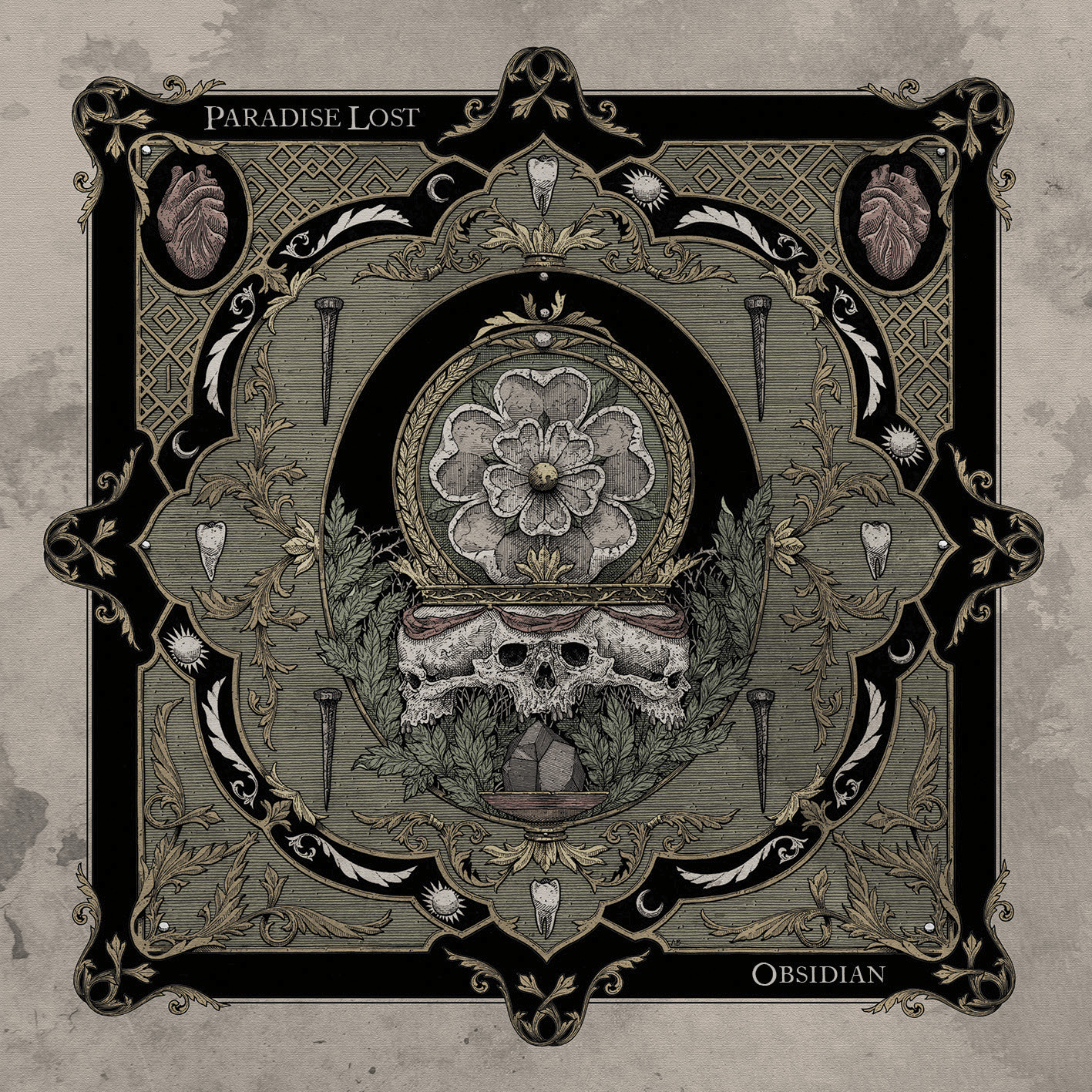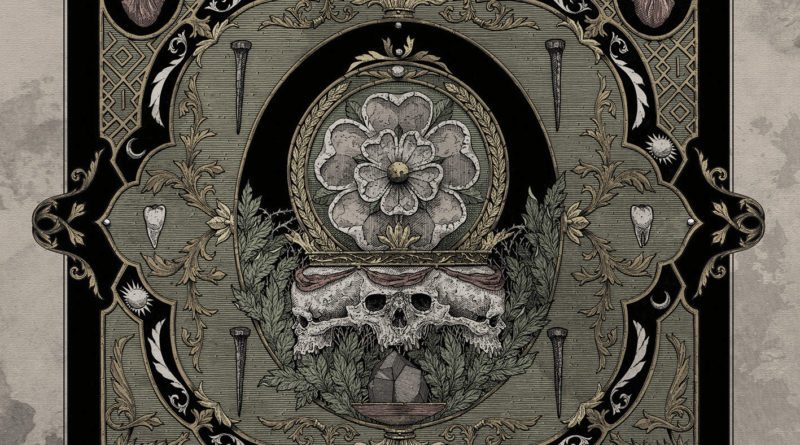ALBUM REVIEW: Obsidian – Paradise Lost
PARADISE LOST have been enjoying something of a renaissance lately. Over the last decade they have been in the process of reimagining their classic death/doom style, and have gone from strength to strength with a string of albums which has seen them creep up the charts once again. They have not allowed the burden of their considerable legacy to weigh them down, and continue to find new means of expression thirty years into their career. With The Plague Within, PARADISE LOST reasserted their extreme metal pedigree, and reminded everyone that they are still a force to be reckoned with in terms of sheer darkness and intensity. Meanwhile, with Medusa they married primitive heaviness with brooding melody, to create a quintessential doom metal record. Three years hence, and PARADISE LOST have returned with their sixteenth studio album Obsidian.
PARADISE LOST had promised that Obsidian would be an eclectic album, and they have fulfilled that promise with diligence and flair. This album is a box of liquorice allsorts. Every track has its distinctive hue, but each is interwoven with PARADISE LOST’s distinctive blackness. Like salty sweetness to the ear, the Yorkshiremen (plus a Finn) have made misery palatable by infusing their characteristic grimness with some poppy hooks and choruses; we defy anyone who hears Ghosts or Forsaken not to begin humming along in unison. This is by no means a return to the synth-pop of Host, nor the angst-rock of Believe In Nothing, but the spectres of SIOUXSIE SIOUX and THE SISTERS OF MERCY loom large over Obsidian.
Lyrically, the album is loosely centred around life’s passage towards death, and the role of fate in that journey. This has been wonderfully illustrated by Adrian Baxter, whose artwork assembles assorted symbols and talismans of luck and providence around a Yorkshire rose. Vocalist Nick Holmes alternates between plaintive speech, lamenting croon and husky growl to create moments of contrast and drama; reminiscent of his celebrated performance on Draconian Times. Meanwhile lead guitarist Gregor Mackintosh opts for a cleaner guitar tone on this record, allowing his signature leads to stand boldly unadorned. There are some moments where their classic sound reemerges – The Devil Embraced and Serenity could have been plucked from the cutting room floor circa 1995, while elegiac Ravenghast captures something of Gothic’s atmosphere – but this album is certainly not money for old rope.
Obsidian is not an especially innovative record, but there is no expectation that well-established artists should be reinventing the wheel. PARADISE LOST know how to put together an album, and Obsidian exudes the composure of musicians who know what they want to make. While Obsidian cannot match its predecessor for sheer heaviness, PARADISE LOST have created an album which excels in its variety. They explore the nuances of their characteristic gothic style with confidence, allowing the simple elegance of clean leads and sing-along choruses to take the fore. Obsidian is among the band’s more accessible records, to be sure, but it does justice to the band’s manifold legacy. Often imitated, but rarely surpassed; no one makes misery as catchy as PARADISE LOST.
Rating: 8/10

Obsidian is set for release May 15th via Nuclear Blast Records.
Like PARADISE LOST on Facebook.

